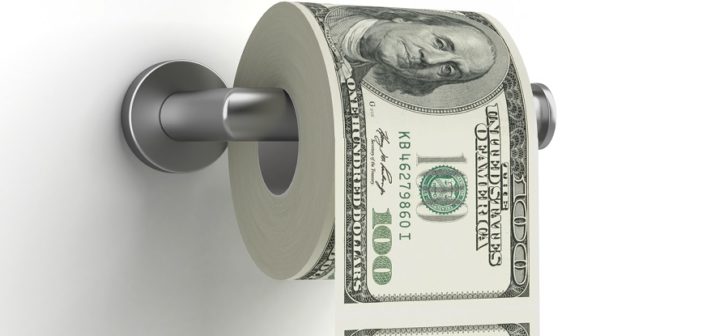 There are some journalists and documentary filmmakers out there who feel it’s important to scrutinize the treatment industry and the “faith-based” program of Alcoholics Anonymous. In what we can only hope is a well-intentioned effort to help alcoholics and addicts recover from a devastating condition, these guys are making some blanket statements that don’t account for all the facts.
There are some journalists and documentary filmmakers out there who feel it’s important to scrutinize the treatment industry and the “faith-based” program of Alcoholics Anonymous. In what we can only hope is a well-intentioned effort to help alcoholics and addicts recover from a devastating condition, these guys are making some blanket statements that don’t account for all the facts.
Though there’s certainly some truth to their arguments, though the recovery business definitely needs scrutiny, and perhaps even regulation, though court-mandated trips to AA meetings should really be abolished, the lack of unbiased research plaguing the recovery conversation is a bit disturbing.
Exposing the recovery “racket” is a new documentary called The Business of Recovery by filmmaker Adam Finberg, which hit the Newport Beach Film Festival at the end of April. That same day, an article about the recovery industry by Dan Munro appeared in Forbes that quotes people like Lance Dodes and Gabrielle Glaser, two of AA’s most notable critics.
Giving Addicts the Shaft?
“The vast majority of addiction treatment is based either partially or entirely on the 12 steps of Alcoholics Anonymous (AA), but is there scientific evidence to support AA as a clinical treatment?” he asks. “Should addiction treatment centers make enormous profits by simply funneling substance abusers into the free fellowship of AA?”
It’s a fair enough question. With luxury rehabs costing up to $60,000 a month, and “cheaper” ones costing anywhere from $10,000 to $20,000 a month, you have to wonder if addicts and alcoholics and their families aren’t getting the shaft.
Some are, and some aren’t.
Spending $30,000 a month to stay in a single bed in a facility that overlooks the Malibu coast but does nothing except feed you high-end fusion cuisine and cart you off to AA meetings is just not a good deal. In fact, it’s a total scam. But the luxury rehabs that understand not all clients are going to respond to 12-step so they instead provide them with the world’s top therapists and many other treatment modalities are somehow not considered here. Instead The Business of Recovery tells the stories of families who have burned up money paying for expensive treatment that has no “scientific basis” but is instead “faith-based” (ahem, 12-step based).
Many of these facilities are simply profiteers—there’s no arguing with that. And parents, siblings, daughters, sons, spouses and significant others are in desperate straits and therefore make desperate decisions, just to keep their loved one alive for one more day.
Munro adds some more disheartening information that was not included in the documentary. Last year, Betty Ford and Hazelden, two high-profile nonprofit treatment providers, merged to become the Hazelden Betty Ford Foundation. Though the new entity is still a nonprofit, the head honchos over there reportedly enjoy salaries that tip toward seven figures.
In addition, AAC (American Addiction Centers) went public this year, raising $75 million. It was the first enterprise focused solely on addiction treatment to go public. Apparently, a significant chunk of change comes in through constant and unnecessary urine drug testing.
But while it’s true that there are shady dealings and shady treatment facilities, there are many wonderful high-end rehabs out there. And plenty of these (not to mention many other public treatment centers) offer treatment modalities in addition to the 12 steps, including evidence-based practices like CBT, DBT and motivational interviewing. There are many rehabs that don’t use the 12 steps at all.
Don’t Dis AA
Munro and other journalists are concerned that AA somehow gets in the way of medical treatment for addiction, specifically mental health treatment. He questions AA’s mantra of “more meetings,” claiming it inhibits members from seeking psychiatric and psychological support for the mental illness that may underlie their addiction. He apparently hasn’t read up on AA’s official position on psychiatric treatment and medication because, if he had, he’d discover that AA is totally pro-shrink.
AA never intended to replace medical or psychiatric care. It never intended to be tied up in a profit-making regime or to be tangled up in judicial policy. All it ever intended to do was pull drunk fuckers out of the gutter—at no cost—so they could join the rest of society as functioning, upstanding and responsible individuals. It’s been doing this for years, providing a big public service that takes not one penny from a taxpayer’s wallet.
The almost hilarious irony is that AA remains dirt poor while the recovery industry is bringing in billions per year, but people knock the AA component of the big recovery business. AA has absolutely no vested interest in the industry—it receives zero money from it and is not linked to it in any way. By not acknowledging this, the critics discredit, devalue and disrespect a program that has helped millions of people get their lives together, free of charge.
Checks and Balances
I totally agree with Munro and Dodes that AA shouldn’t let rehabs use 12-step programs as part of their treatment plan. No one should have to pay for AA. And the recovery industry definitely needs some checks and balances. But as journalists and filmmakers join the conversation, they need to gather all the facts, sort through the polemics and perhaps talk to those who have stayed sober through rehab treatment or 12-step programs.
Whether the drunks and addicts have seen the light through CBT, SMART Recovery (What is SMART Recovery?), Campral or AA, they probably have more informed and insightful thoughts about how to reform the industry than journalists and filmmakers who have never gone through the trenches themselves.
Now, please tweet that to Adam Finberg and Dan Munro.
Sponsored DISCLAIMER: This is a paid advertisement for California Behavioral Health, LLC, a CA licensed substance abuse treatment provider and not a service provided by The Fix. Calls to this number are answered by CBH, free and without obligation to the consumer. No one who answers the call receives a fee based upon the consumer’s choice to enter treatment. For additional info on other treatment providers and options visit www.samhsa.gov.




